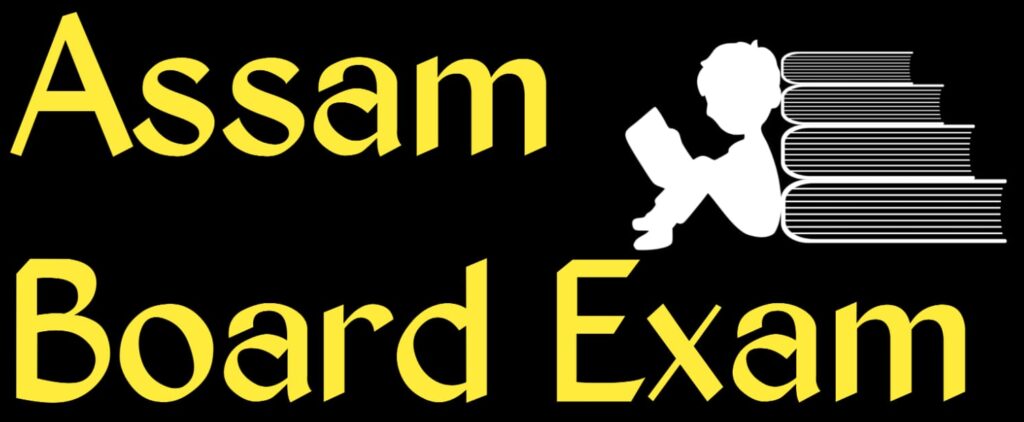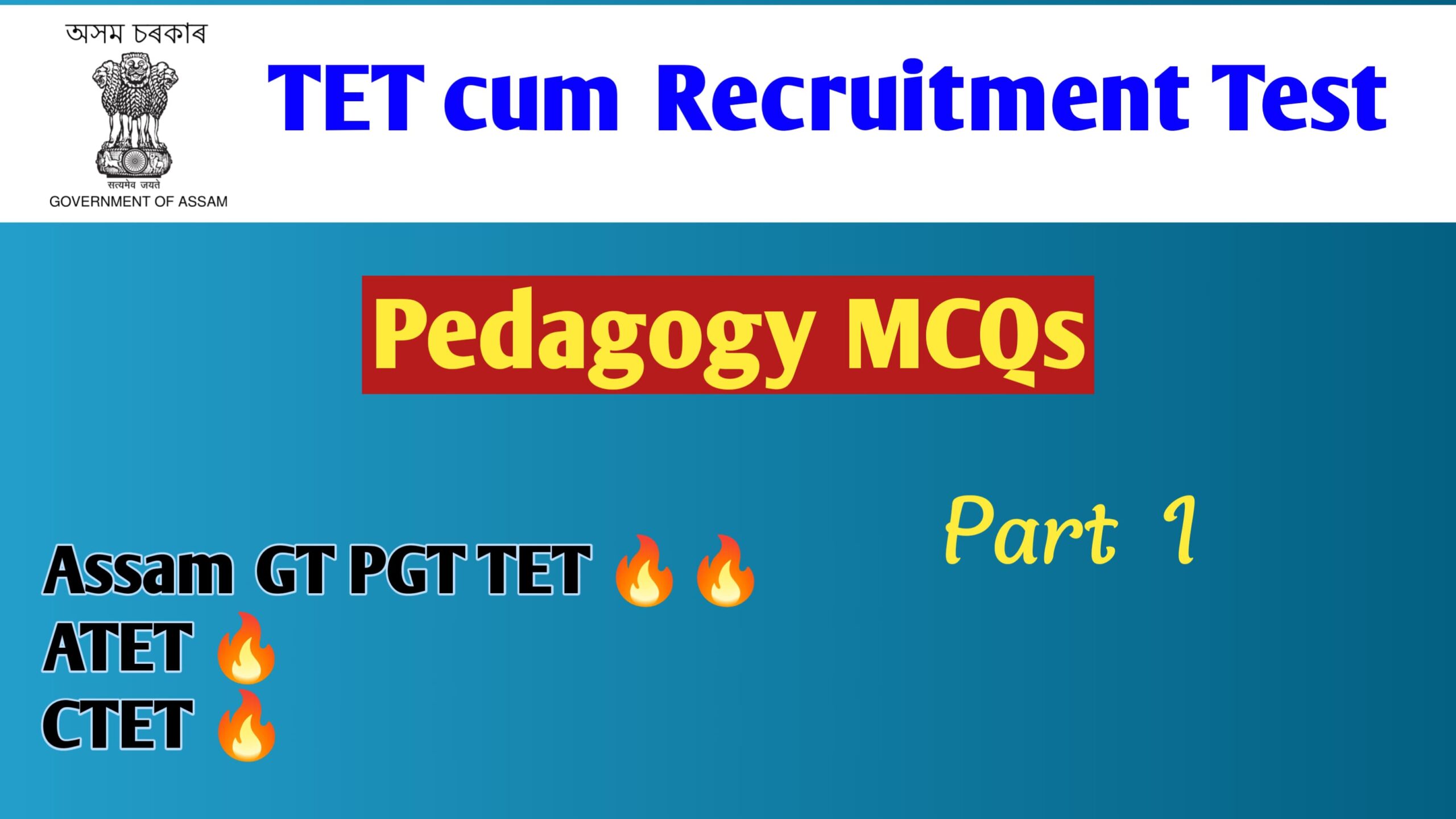Welcome to the Pedagogy MCQs section for Assam TET, GT, and PGT TET, CTET exams. This page is designed to help aspiring teachers enhance their understanding of teaching methodologies, educational psychology, and classroom management through practice questions. Pedagogy is a vital subject for any teaching exam, and practicing MCQs will strengthen your preparation.
Instructions:
- Each question has four options. Choose the correct one.
- You can use these MCQs for practice, revision, or to gain a deeper understanding of Pedagogy.
Pedagogy MCQ Questions:
1) Learning is
(a) a change in behaviour
(b) the result of experience or practice
(c) relatively permanent change in behaviour
(d) All of the above
Ans: d
2) Development starts from
(a) post-childhood stage
(b) pre-natal stage
(c) the stage of infancy
(d) pre-childhood stage
Ans: b
3) The meaning of development is
(a) progressive series of changes
(b) progressive series of changes as a result of motivation
(c) progressive series of changes as a result of motivation and experience
(d) series of changes as a result of maturation and experience
Ans: d
4) Development occurs in human beings
(a) upto the end of adolescence period
(b) upto the end of childhood
(c) upto the starting of adulthood0
(d) throughout the life
Ans: d
5) What is the meaning of growth?
(a) Change related to result
(b) Change-related to measurement
(c) All of the above
(d) None of the above
Ans: b
6) Under which of the following conditions does the emotional and social development of the child occur in a positive manner?
(a) When the child is considered as important and his feelings are respected
(b) When the child told to learn more and more
(c) When the child gets good marks in the class
(d) When the teacher teaches the child according to its intellectual level
Ans: a
7) Cognitive development means
(a) development of intelligence
(b) development of child
(c) development of physical skills
(d) development of individual
Ans: a
8) Adolescents get pleasure
(a) in the company of their friends
(b) by examining their body structure
and physique
(c) in the company of the opposite sex
(d) All of the above
Ans: d
9) The most appropriate meaning of learning is
(a) acquisition of skills
(b) inculcation of knowledge
(c) modification of behaviour
(d) personal adjustment
Ans: c
10) The difficult age of development is
(a) earlier childhood
(b) teen age
(c) young-adult age
(d) old-adult age
Ans: b
11) Factors influencing emotional development are
(a) physical health
(b) mental abilities
(c) fatigue
(d) All of these
Ans: d
12) Language development of children depends on
(a) better socio-economic environment
(b) better schooling
(c) freedom of expression given to the child
(d) All of the above
Ans: d
13) Which of the following statements about principles of development is incorrect?
(a) Development takes place due to a constant interaction between heredity and environment
( b) Development depends on maturation and learning
(c) Every child goes through stages of development, yet there are wide individual differences among children
(d) Development is a quantitative process which can be measured precisely
Ans: d
14) Which one of the following statements best sums up the relationship between development and learning?
(a) Development is independent of learning
(b) Learning trails behind development
(c) Learning and development are synonymous terms
(d) Learning and development are inter-related in a complex manner
Ans: d
15) Human development is based on certain principles. Which of the following is not a principle of human development?
(a) Sequentially
(b) General to specific
(c) Reversible
(d) Continuity
Ans: c
16) Which of the following statements cannot be considered as a feature of ‘learning’?
(a) Learning is something that occurs as a result of certain experiences
(b) Study of behaviour is learning
(c) Unlearning is also a part of learning
(d) Learning is a process that mediates behaviour
Ans: b
17) Which statement about growth is correct?
(a) Sharp growth rate is seen at the time of spurts in height
(b) Retarded physical development retards social development too
(c) The rate of growth during infancy and pre-adolescence is very high
(d) All of the above
Ans: d
18) The feeling of shame and pride develops in stage.
(a) infancy
(b) childhood
(c) adolescence
(d) adulthood
Ans: b
19) Which of the following characteristics of development is an incorrect one?
(a) There are individual differences in development
(b) Development is the result of coincidences
(c) It is a continuous process
(d) It is predictable
Ans: b
20) Which of the following statements is not correct about development?
(a) Each phase of development has variations
(b) Development is not aided by stimulation
(c) Development is affected by cultural changes
(d) Each phase of the development has its own characteristic behaviour
Ans: b
More MCQs:
- Assam General Knowledge MCQ
- Indian History MCQ
Stay Updated
For the latest on Pedagogy and other study resources, keep visiting Assam Board Exam
For More details check our Youtube Channel Assam Board Exam

